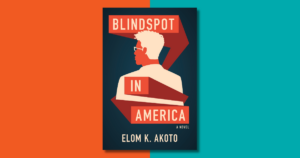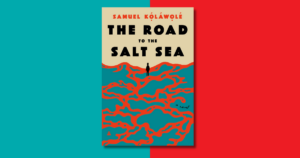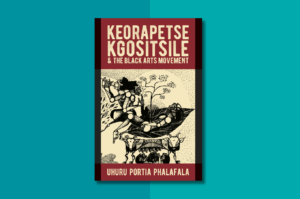
Chapter 4
My uncle, the chief, one day told me an incredible story. If you lay down a chicken and place a knife on its neck saying to it, for example: ‘Don’t move, I am going to the market and when I come back I am going to slit your throat,’ the chicken will not move until you come back from the market and kill it. Try it, you will see.
I was not a chicken. I refused to remain lying down where chance had birthed me. I refused to be a collateral victim of International Monetary Fund structural adjustment programs. I refused to silently suffer the carelessness of those in charge. I grabbed my destiny by its horns. I looked it straight in the eyes and I gave orders. Come what may! My plan was simple: One, get out of this rat-hole as soon as possible. Two, go and make a fortune in Europe, or even better in the land of Uncle Sam. Three, come back and live like a king, taunting all those who had treated me like dirt.
From here the grass looked very much greener on the pastures of the neighboring continent. Lambana claimed to have seen them. He also said that the European coastline was closer to Africa than people said. Lambana was a former classmate. But he had paid more attention to the teacher, as my mother says. He became a police officer. He had just returned from a six-month training course in Algiers. He came back cloaked in new-found prestige. The fact that he had succeeded in joining the police corps had already set him apart from the rest of us, the futureless ones. But the fact that he had gotten so close to those ever-so-coveted coasts and had come back ‘to serve’ as he asserted with a certain emphasis, elicited the admiration of all the mothers in our neighborhood. ‘Only God knows why!’ sighed some mothers rather cryptically.
In the stories of his mythical trip, Lambana compared the Mediterranean to the dam that separated our neighborhood from the one on the opposite bank. He claimed that from Algiers you could see the town of Marseille and the green pastures that surrounded it. We all knew that Lambana was a serial exaggerator, but we wanted so badly to believe him! We so badly wanted those coasts to be closer, to be more accessible. Virtually, they had come much closer in recent times. Thanks to satellite we could now, in real-time, watch the same programs on television as the lucky inhabitants of the countries where good and beautiful things were available to all. Though not at our house where we only had an old TV – in color, but so capricious that every now and then you had to slap it to get it to work. We received only the sole national TV channel. But in some of the better-off homes, satellite dishes on rooftops signaled subscription to a package of a dozen channels. The less well-off among us could watch some of these channels at Modou’s. Modou was the basket-case of the neighborhood. Mothers said his name only to express pity for his mother or to feel better about their own offspring. ‘That poor woman,’ you would hear, ‘suffering nine months for that! If at least she had had another child.’ Or: ‘Mine at least got his primary certificate or his junior high certificate, or mine at least is a mechanic, a welder or an electrician…’ Hajja Safiatou was a gentle and modest woman. She watched over her only son like a mother hen and cut short any discussion if she sensed the slightest criticism of him. At almost thirty years of age, Modou had never made the least attempt at emancipation. Some even claimed that he still slept in the corridor outside his mother’s room, refusing to move into one of the rooms in the bachelor wing that had been built on one side of the large compound to house the young men of the family.
***
Read the full excerpt here: PEN America
Buy So Distant from My Life here: Amazon
Excerpt from SO DISTANT FROM MY LIFE published by Tilted Axis Press. Copyright © 2022 by Monique Ilboudo.









COMMENTS -
Reader Interactions